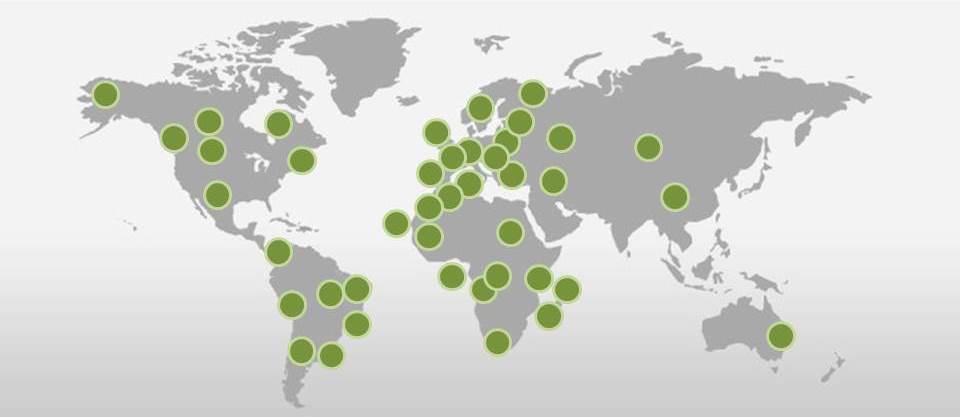CIBIO-InBIO sustains a national and international configuration that supports research activities and projects at a global scale.
We aim at becoming a top-level international research centre in the areas of evolutionary biology, biodiversity and conservation. Our scientists are encouraged and supported to establish and maintain regular collaborations with a large number of foreign institutions and they carry out research projects across all continents.
We aim at becoming a top-level international research centre in the areas of evolutionary biology, biodiversity and conservation. Our scientists are encouraged and supported to establish and maintain regular collaborations with a large number of foreign institutions and they carry out research projects across all continents.

Research environment at CIBIO-InBIO is vibrant and multicultural, with 27% of international researchers and 18% students from 23 nationalities.
As part of its internationalization strategy, CIBIO-InBIO has invested, over the past decade, in strengthening ties with Portuguese-speaking African countries, and its neighbouring countries of English official language, with the aim of promoting the reinforcement of competences in the area of biodiversity and natural heritage management.
In order to fulfil the priority effort of filling the gaps in scientific knowledge on biodiversity in these countries, CIBIO-InBIO promoted the structural implementation of the TwinLabs Programme: a scheme for staff exchange and joint scientific research, involving a physical base - usually in an Higher Education institution - and a strategic plan, adapted to the region of implementation, focused on the ultimate objective of capacity building, in order to create a specialized critical mass in the areas of biodiversity research, conservation, sustainable development and natural heritage management. The activity of the TwinLabs is organised around the instrumental axes of research, advanced training (master's and doctoral programmes, technical courses) and scientific dissemination.
As part of its internationalization strategy, CIBIO-InBIO has invested, over the past decade, in strengthening ties with Portuguese-speaking African countries, and its neighbouring countries of English official language, with the aim of promoting the reinforcement of competences in the area of biodiversity and natural heritage management.
In order to fulfil the priority effort of filling the gaps in scientific knowledge on biodiversity in these countries, CIBIO-InBIO promoted the structural implementation of the TwinLabs Programme: a scheme for staff exchange and joint scientific research, involving a physical base - usually in an Higher Education institution - and a strategic plan, adapted to the region of implementation, focused on the ultimate objective of capacity building, in order to create a specialized critical mass in the areas of biodiversity research, conservation, sustainable development and natural heritage management. The activity of the TwinLabs is organised around the instrumental axes of research, advanced training (master's and doctoral programmes, technical courses) and scientific dissemination.
